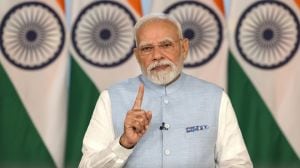What Left won’t say when it opposes US ties
As the Left parties hit the streets tomorrow to protest against the nation’s expanding engagement with the United States—10 days b...

As the Left parties hit the streets tomorrow to protest against the nation’s expanding engagement with the United States—10 days before Prime Minister Manmohan Singh heads to Washington—they have the potential to complicate a major foreign policy initiative by the Government.
The question India’s interlocutors will soon ask is whether the Manmohan Singh government will allow its coalition partners to exercise a veto over the nation’s foreign and security policies.
Ever since India began re-adjusting its foreign policies since the end of the Cold War, the Left has accused the governments of the day—whether led by the Congress or the BJP—of selling out to Washington.
That might be consistent with Left ideology, but not the core principles of India’s foreign policy or its practice over the decades.
The Left’s claim that in expanding defence cooperation with the US, the Government departs from either a presumed national consensus on foreign policy or the common minimum programme (CMP) of the United Progressive Alliance does not stand up to scrutiny.
Jawaharlal Nehru himself turned to defence cooperation with the U.S. after the 1962 war with China. It was Rajiv Gandhi who launched defence technological cooperation with the US in the mid 1980s. Since the early 1990s, defence engagement with the US has steadily expanded.
The CMP, like any other document on foreign policy, cannot pre-determine all future outcomes. The nation’s foreign policy has to move on, especially amidst the current dynamic international context.The CMP, for example, says India should pursue talks with China and Pakistan seriously. It does not say how.
The Manmohan Singh Government has, rightly, gone beyond that mandate to sign an agreement on “guiding principles and political parameters” on the contentious question of boundary settlement with China. It has also agreed to negotiate the future of Jammu and Kashmir with Pakistan.
These sensitive negotiations raise questions about the Parliament resolutions of 1962 and 1994 on territorial questions involving China and Pakistan respectively. The government is in the process of creating a new consensus on these issues beyond that stated in the CMP.
The Left has backed these negotiations, but objects to mere defence cooperation with the US. The Left opposition might have less to do with the sanctity of the CMP than its desire to cherry pick on foreign policy. The Left parties know, more than any one else, they were not always part of the national consensus on foreign policy.
Well into the 1960s, the Left derided non-alignment as immoral neutrality between the regressive west and the progressive east. It was only in the 1970s that it discovered the “anti-imperialist virtues” of non-alignment.
While not objecting to China’s nuclear weapons programme, the Left until recently demanded India’s denuclearisation. While it was silent on Chinese nuclear and missile assistance to Pakistan in the 1980s and 1990s, it now opposes India’s limited efforts to build defences against nuclear missiles.
The Left objects to participating in multinational operations other than those authorised by the United Nations. India has used force outside its borders many times and has not always sought UN authorisation to do so. The liberation of Bangladesh was just one of those occasions.
In any case the framework agreement with the US says, the two sides will “collaborate in multinational operations, when it is in their common interest”. Decisions on all such operations are inevitably arrived at on a case-by-case basis. No one can force India.
Even reading it literally, the CMP lays down only one test for India’s external relations—independent foreign policy. Defence cooperation with the US expands India’s options in terms of sourcing of weapons and technology as well as providing the much needed strategic space.
The CMP also talks of India working for “multipolarity”. But the Left seems to interpret “multipolarity” as acting against the US. That interpretation of multipolarity has no takers in Russia, China, or Europe, for all of whom the US is the topmost foreign policy partner.
Photos



- 01
- 02
- 03
- 04
- 05



























